





Hyperuricemia
Hyperuricemia it is considered to be a state at which the level of uric acid in blood exceeds limit indicators. Normal concentration of uric acid in blood has to be in limits of 240-400 microns/l.
Hyperuricemia reasons
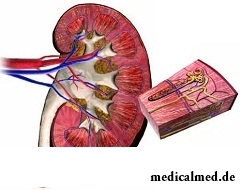 Two factors can serve as the reasons of a hyperuricemia:
Two factors can serve as the reasons of a hyperuricemia:
- excess formation of uric acid (exchange or metabolic hyperuricemia);
- removal disturbance by kidneys of uric acid (renal hyperuricemia).
As the reason of a hyperuricemia renal can serve both a hereditary factor, and acquired. Anyway, as a releaser serves disturbance of filtrational and canalicular function of kidneys. The acquired hyperuricemia, as a rule, arises already in old age owing to a sklerozirovaniye of renal vessels (when in walls of vessels the cicatricial fabric leading to narrowing of gleams of vessels expands). Also acquired hyperuricemia can be a consequence of atherosclerosis, a diabetes mellitus, a hypertension, and sometimes long and unreasonable reception of some medicines (in particular diuretics and aspirin).
The constant raised indicators of uric acid in urine at first promote formation of sand in kidneys, and afterwards and stones (the urolithiasis develops). Quite often gouty arthritis (gout) – an inflammation of joints of chronic character which is followed by severe pains and deformation of joints is a consequence of disturbance of purine exchange.
In general, gout for many years was considered as exclusively hereditary disease. However numerous researches according to which data on gout and the reasons of its development significantly extended were conducted in recent years.
Thus, it is already known that gouty arthritises and uratny stones arise against the background of disturbance of purine exchange.
Researches of the last years also showed that disturbance of purine exchange can promote development of disturbance of work of beta cells of a pancreas therefore inability of these cells to synthesize insulin develops. Thus, already for anybody the combination of such diseases as a diabetes mellitus, gout and an urolithiasis is not surprising.
Quite often the hyperuricemia develops as a result of abuse of alcoholic drinks, long reception of medicines (diuretics, salicylates). The increased concentration of uric acid in blood leads to the fact that it, getting to joint liquid where crystals of acid form accumulations in circumarticular fabrics and joints, destroys cartilaginous and bone fabrics, causing their deformation and an inflammation.
Hyperuricemia symptoms
The most important symptom of a hyperuricemia is the raised indicator of uric acid in blood. Naturally, for diagnosis of this disease it is necessary to take a blood test on biochemical analysis.
If results of the analysis show that the patient is in risk group, that is the level of uric acid has boundary indicators, it is recommended to pass immediately to a diet at a hyperuricemia.
Treatment of a hyperuricemia
Doctors at treatment of a hyperuricemia use several approaches. First of all it is necessary to keep to a diet at a hyperuricemia which means a complete elimination from a diet of products with the high content of purines. Thus, it is necessary to exclude the following products from a diet:
- alcoholic beverages and beer (a small amount of dry wine is sometimes allowed);
- fish and meat dishes in the baked, fried and stewed look;
- rich fish and meat soups;
- heart, kidneys, liver, sausages, various smoked products, canned food and bean (peas, haricot, soy).
Also the diet at a hyperuricemia means restriction of the use of spinach, a sorrel, cheese, a garden radish, cocoa, chocolate, a cauliflower. But the following products are welcomed:
- meat of chicken, turkey, rabbit;
- various lenten soups and first courses made on the "second" fish or beef-infusion broth;
- dairy and fermented milk products;
- berries, greens, vegetables and fruit.
Special preference at treatment of a hyperuricemia should be given to the fruit and vegetables rich with potassium (eggplants, pumpkin, a white cabbage, cucumbers, carrots, sweet pepper, apricots, green peas, grapes, melons, pears, apples). From berries will be the most useful bright red, blue and dark (sweet cherry, cherry, a cranberry, blueberry, a guelder-rose, a hawthorn, cowberry). All of them are rich with the substances promoting decrease in concentration of uric acid in blood.
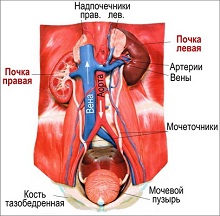 At treatment of a hyperuricemia it is necessary to drink daily about 2-2,5 liters of water. A large amount of liquid dilutes urine and is excellent prevention of formation of stones in kidneys. Water best of all will approach spring, it is useful to add to it a little juice of a lemon, cowberry or a cranberry.
At treatment of a hyperuricemia it is necessary to drink daily about 2-2,5 liters of water. A large amount of liquid dilutes urine and is excellent prevention of formation of stones in kidneys. Water best of all will approach spring, it is useful to add to it a little juice of a lemon, cowberry or a cranberry.
Weekly it is necessary to do fasting days.
At drug treatment of a hyperuricemia to patients appoint пробенецид which promotes decrease in uric acid. At hyperuricemia symptoms doctors also widely use Allopyrinolum, xanthineoxidase inhibitor.
Even if heart of the person does not fight, then he all the same can live during a long period, as the Norwegian fisherman Jan Revsdal showed us. Its "motor" stopped for 4 hours after the fisherman got lost and fell asleep in snow.

On the head of the person about one million hair follicles, or as they are called still, hair bulbs are located. At the moment he is born...
Section: Articles about health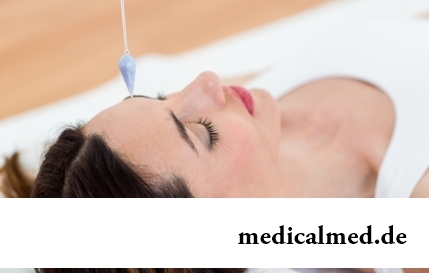
Practice of hypnotic impact on consciousness of the person contains about two millennia. During this time scientists managed to learn a lot of things about a phenomenon of hypnosis and learned to facilitate a condition of the patients having heavy illnesses with its help....
Section: Articles about health
Visit of doctors – business not the most pleasant, and many people do not hurry to undergo necessary planned inspections. Such behavior is extremely thoughtless and improvident. Our health is necessary not only to us: wellbeing of darlings, children, grandsons and aged parents directly depends on as far as we are vigorous and able-bodied. Therefore in time to be inspected – a duty of any modern person. Specialists consider that 7 regular surveys and di are especially necessary for women...
Section: Articles about health
The modern person not always manages to find housing in the environmentally friendly region and such work which would not do harm здо...
Section: Articles about health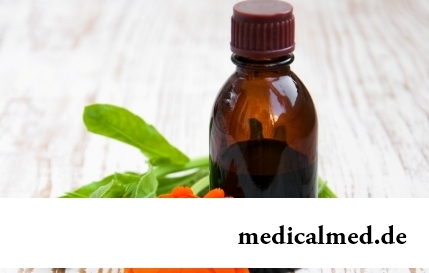
The cosmetics intended for improvement of a condition of skin, nails and hair are used by each woman. Expenses on regular acquisition of the fashionable widely advertized products of well-known companies for many become very notable and significantly to an obrema...
Section: Articles about health
According to World Health Organization, every third inhabitant of Earth has excess weight, and every tenth has obesity. The reason of this phenomenon, according to specialists, roots in one not very comforting fact: most of people consume much more calories, than it is necessary. How it turns out what we overeat? Why it is so difficult to refuse an excess portion tasty or additives? Let's try to find out what factors prevent us to eat food with reasonable moderation....
Section: Articles about health
Summer in the heat. Many are going to spend vacation abroad. Travelers the tender seas, rest on beaches wait, for survey достоп...
Section: Articles about health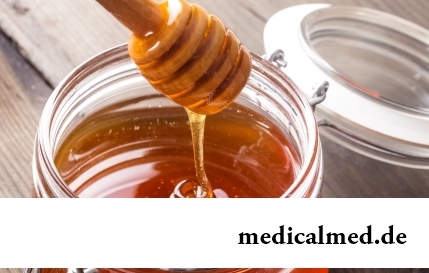
The trophic ulcer is not an independent disease. This heavy complication arising owing to a thermal injury (a burn or a frostbite), chronic pathologies of arteries or veins of the lower extremities, a diabetes mellitus, and also some defeats of a soyeda...
Section: Articles about health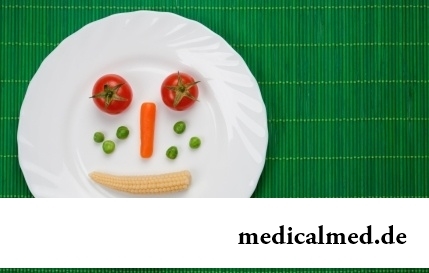
About influence of fasting days on an organism it is told much – both about advantages, and about shortcomings. It is considered that fasting day in the form of a short-term monodiet is useful, promoting effective removal of slags from an organism whereas irregular, excessively long, spontaneous fasting days lead only to deterioration in health. How to derive benefit from the sparing diet and not to do much harm to itself? Let's consider the main advantages and shortcomings of fasting days and their influence on an org...
Section: Articles about health
Quite large number of people adheres to the principles of vegetarian food. But how to be if in a family of vegetarians is д...
Section: Articles about health
The kid who was recently born is surrounded with love of adult family members and their cares without which the baby cannot exist. Some parents consider that gentle attachment and caress are quite enough that the child correctly developed and was happy...
Section: Articles about health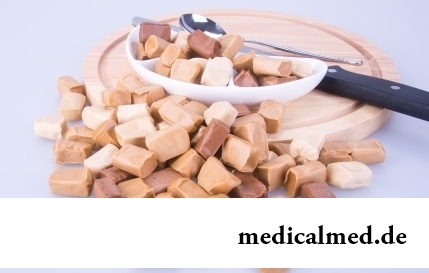
Food with the increased content of sugar is attractive to most of people - it is scientifically confirmed fact. Business here not in intemperance or dissoluteness: the sweet food is associated since childhood with feeling of rest and safety which tests the kid when it absorbs maternal milk. Besides, getting into a human body, sugar strengthens production of "happiness hormones" which all of us so need. And still life of sweet teeth seldom happens cloudless: their too big loss...
Section: Articles about health
Stability of a hormonal background is one of the most important conditions of preservation of health of the woman. At the same time endocrine system –...
Section: Articles about health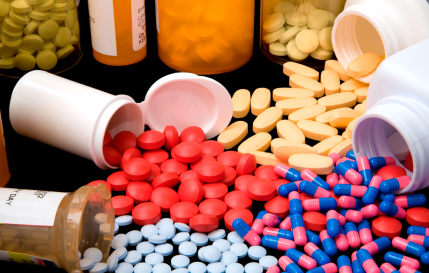
Long time antibiotics were considered as a panacea from all diseases and were appointed even at insignificant symptoms of an infection. Even now not everyone knows in what force of antibiotics how and when they should be accepted. Let's discredit 7 popular myths about such drugs...
Section: Articles about health
The endocrine system carries out extremely important role in a human body, practically all processes of life activity are regulated by it. Closed glands (hemadens) produce special biologically active agents – hormones which then get to a blood channel and are transferred to bodies addressees, or as they are called still, to target organs. Frustration of this mechanism are fraught with development of serious chronic pathologies....
Section: Articles about health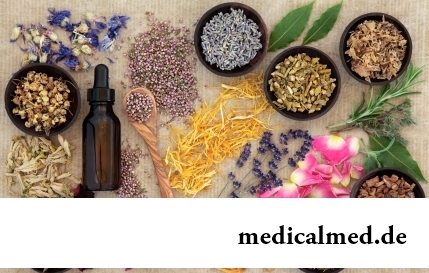
The naturopathy sometimes moves as the new direction of medicine, something like fashionable hobby, and there is nothing farther from the truth....
Section: Articles about health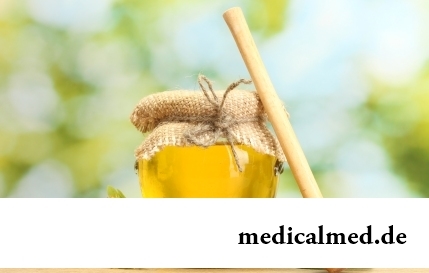
Bees – really unique beings. Practically all products of their life activity are used by the person. Since the most ancient times medicinal properties of honey and other substances received in the course of beekeeping are known. The fact that all these пр is especially significant...
Section: Articles about health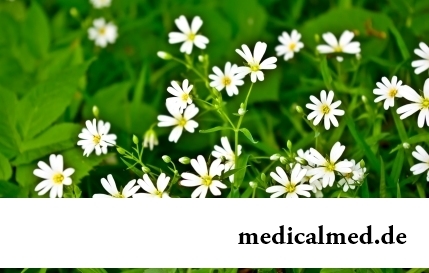
Wood louse – the ordinary-looking unpretentious plant extended in all territory of our country. It quickly expands, and sometimes fills sites, bringing a lot of chagrin to gardeners. Perhaps, they would be upset less if knew that the wood louse is valuable medicinal raw materials. A, C and E vitamins, organic acids, tannins, wax, saponins, lipids, mineral salts and essential oils are its part....
Section: Articles about health
Good appetite was always considered as a sign of good health. The correct operation of the mechanism which is responsible for the need for nutritious...
Section: Articles about health
For many women the word "fat" sounds as a sentence. In aspiration to an ideal figure they try to exclude, first of all, from the menu all dishes containing fats without having at the same time a clear idea of a role of these substances in exchange processes, and about an afterbirth...
Section: Articles about health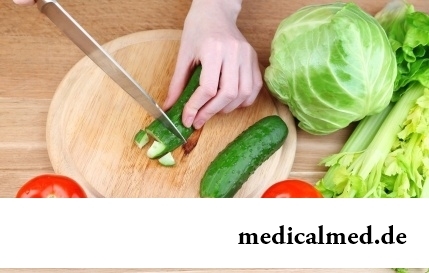
Very often as a source of the infection which caused a disease serves our house - the place which a priori has to be safe. However disease-producing bacteria can perfectly feel not only in insanitary conditions, but also in our apartment if not to carry out due care of favourite places of their dwelling. What they − sources of their reproduction? Let's consider 10 most widespread places in our house, the most dangerous from the point of view of infection with microorganisms....
Section: Articles about health
Zone hypostases under eyes - very widespread problem giving to people is a lot of inconvenience. Hypodermic fabric in these parts having...
Section: Articles about health
Climax - process of fading of reproductive function of an organism in process of its aging. At women the main sign of its approach is the termination of a menstrual cycle. Officially the menopause is diagnosed when periods are not observed in течен...
Section: Articles about health
Life of the modern woman is very difficult. Opportunities to realize itself are wide: it not only education and career, but also the most various hobbies from sport before needlework. It is not less important to build private life, paying an attention maximum to children, the husband, parents, friends. For all these affairs there is catastrophically not enough time therefore each of us tries to cut down as far as possible its expenses on necessary, but not the most fascinating housework. With it we are successfully helped by means...
Section: Articles about health
Eyes – unique body on the structure thanks to which the person obtains about 80% of information on the world around: about a form...
Section: Articles about health
Condition of lips (their morbidity, outward) – one of indicators of health of the person. The peeling, dryness, pallor, and also cracks in corners of a mouth can be not only the cosmetic shortcoming which arose owing to physical damages and weather having sent away...
Section: Articles about health
Shops of household appliances offer us the huge choice of various devices for the house. Whether there are among this abundance devices which not only facilitate house work, but also help to keep health of the person? Of course, and we will tell about them today....
Section: Articles about health
